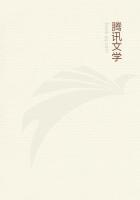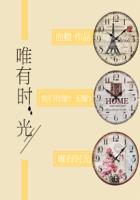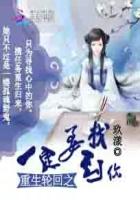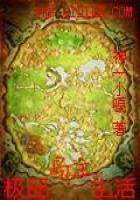ONE fine May afternoon in 1870 Adams drove again up St. James's Street wondering more than ever at the marvels of life. Nine years had passed since the historic entrance of May, 1861. Outwardly London was the same. Outwardly Europe showed no great change. Palmerston and Russell were forgotten; but Disraeli and Gladstone were still much alive. One's friends were more than ever prominent. John Bright was in the Cabinet; W. E. Forster was about to enter it; reform ran riot. Never had the sun of progress shone so fair. Evolution from lower to higher raged like an epidemic. Darwin was the greatest of prophets in the most evolutionary of worlds. Gladstone had overthrown the Irish Church; was overthrowing the Irish landlords; was trying to pass an Education Act. Improvement, prosperity, power, were leaping and bounding over every country road. Even America, with her Erie scandals and Alabama Claims, hardly made a discordant note.
At the Legation, Motley ruled; the long Adams reign was forgotten; the rebellion had passed into history. In society no one cared to recall the years before the Prince of Wales. The smart set had come to their own.
Half the houses that Adams had frequented, from 1861 to 1865, were closed or closing in 1870. Death had ravaged one's circle of friends. Mrs. Milnes Gaskell and her sister Miss Charlotte Wynn were both dead, and Mr. James Milnes Gaskell was no longer in Parliament. That field of education seemed closed too.
One found one's self in a singular frame of mind -- more eighteenth-century than ever -- almost rococo -- and unable to catch anywhere the cog-wheels of evolution. Experience ceased to educate. London taught less freely than of old. That one bad style was leading to another -- that the older men were more amusing than the younger -- that Lord Houghton's breakfast-table showed gaps hard to fill -- that there were fewer men one wanted to meet -- these, and a hundred more such remarks, helped little towards a quicker and more intelligent activity. For English reforms Adams cared nothing.
The reforms were themselves mediæval. The Education Bill of his friend W. E. Forster seemed to him a guaranty against all education he had use for. He resented change. He would have kept the Pope in the Vatican and the Queen at Windsor Castle as historical monuments. He did not care to Americanize Europe. The Bastille or the Ghetto was a curiosity worth a great deal of money, if preserved; and so was a Bishop; so was Napoleon III. The tourist was the great conservative who hated novelty and adored dirt. Adams came back to London without a thought of revolution or restlessness or reform. He wanted amusement, quiet, and gaiety.
Had he not been born in 1838 under the shadow of Boston State House, and been brought up in the Early Victorian epoch, he would have cast off his old skin, and made his court to Marlborough House, in partnership with the American woman and the Jew banker. Common-sense dictated it; but Adams and his friends were unfashionable by some law of Anglo-Saxon custom -- some innate atrophy of mind. Figuring himself as already a man of action, and rather far up towards the front, he had no idea of making a new effort or catching up with a new world. He saw nothing ahead of him. The world was never more calm. He wanted to talk with Ministers about the Alabama Claims, because he looked on the Claims as his own special creation, discussed between him and his father long before they had been discussed by Government; he wanted to make notes for his next year's articles; but he had not a thought that, within three months, his world was to be upset, and he under it. Frank Palgrave came one day, more contentious, contemptuous, and paradoxical than ever, because Napoleon III seemed to be threatening war with Germany.
Palgrave said that "Germany would beat France into scraps" if there was war. Adams thought not. The chances were always against catastrophes. No one else expected great changes in Europe. Palgrave was always extreme; his language was incautious -- violent!
In this year of all years, Adams lost sight of education. Things began smoothly, and London glowed with the pleasant sense of familiarity and dinners. He sniffed with voluptuous delight the coal-smoke of Cheapside and revelled in the architecture of Oxford Street. May Fair never shone so fair to Arthur Pendennis as it did to the returned American. The country never smiled its velvet smile of trained and easy hostess as it did when he was so lucky as to be asked on a country visit. He loved it all -- everything -- had always loved it! He felt almost attached to the Royal Exchange.
He thought he owned the St. James's Club. He patronized the Legation.
The first shock came lightly, as though Nature were playing tricks on her spoiled child, though she had thus far not exerted herself to spoil him. Reeve refused the Gold Conspiracy. Adams had become used to the idea that he was free of the Quarterlies, and that his writing would be printed of course; but he was stunned by the reason of refusal. Reeve said it would bring half-a-dozen libel suits on him. One knew that the power of Erie was almost as great in England as in America, but one was hardly prepared to find it controlling the Quarterlies. The English press professed to be shocked in 1870 by the Erie scandal, as it had professed in 1860 to be shocked by the scandal of slavery, but when invited to support those who were trying to abate these scandals, the English press said it was afraid. To Adams, Reeve's refusal seemed portentous. He and his brother and the North American Review were running greater risks every day, and no one thought of fear. That a notorious story, taken bodily from an official document, should scare the Endinburgh Review into silence for fear of Jay Gould and Jim Fisk, passed even Adams's experience of English eccentricity, though it was large.















